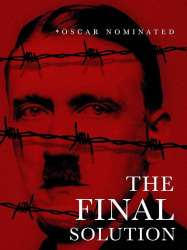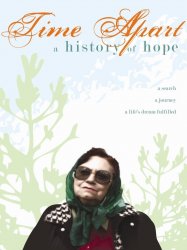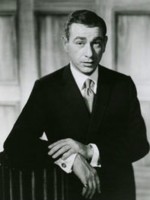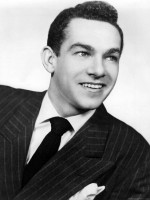When Jews Were Funny is a canadien film of genre Documentary with Howie Mandel
When Jews Were Funny (2013)

If you like this film, let us know!
Length 1h29
OriginCanada
Genres Documentary
Themes Films about religion, Documentaire sur une personnalité, Documentary films about religion, Films about Jews and Judaism
Rating60%










When Jews Were Funny is a documentary film by Canadian director Alan Zweig, released in 2013, which explores the role of Jewish comedians in the history of North American comedy and humour from the Borscht belt to the present day.
The film features interviews with and/or performance clips of a wide variety of Jewish comedy performers and writers of the 20th and 21st centuries, including Howie Mandel, Gilbert Gottfried, Rodney Dangerfield, Eugene Mirman, Marc Maron, Bob Einstein, Andy Kindler, Shelley Berman, Alan King, Judy Gold, Elon Gold, David Steinberg, Jackie Mason, Jack Carter, Norm Crosby, Henny Youngman, David Brenner, Shecky Greene, Mark Breslin, Cory Kahaney, Harrison Greenbaum, Simon Rakoff, Lisa Lambert, Larry Josephson and Michael Wex.
The film premiered on September 10, 2013 at the 2013 Toronto International Film Festival. It subsequently won the festival award for the year's best Canadian feature film.
^ "TIFF ’13: Zweig remembers the “Funny”". Real Screen, September 16, 2013.
^ "TIFF 2013: 12 Years a Slave wins film fest’s top prize". Toronto Star, September 15, 2013.
Actors
Comments
Leave comment :
Suggestions of similar film to When Jews Were Funny
There are 30 films with the same actors, 8953 with the same cinematographic genres, 5529 films with the same themes (including 156 films with the same 4 themes than When Jews Were Funny), to have finally 70 suggestions of similar films.If you liked When Jews Were Funny, you will probably like those similar films :

The Aristocrats (2005)
, 1h28Directed by Penn Jillette, Paul Provenza
Origin USA
Genres Comedy, Documentary
Themes Documentaire sur une personnalité, Political films, Films about language and translation
Actors Jason Alexander, Hank Azaria, Shelley Berman, Lewis Black, David Brenner, Mario Cantone
Rating63%






All Hell Broke Loose (1995)
, 45minutesOrigin Israel
Genres Documentary
Themes Films set in Africa, Films about religion, Films about terrorism, Documentary films about law, Documentary films about war, Documentary films about historical events, Documentaire sur une personnalité, Documentary films about politics, Documentary films about religion, Documentary films about terrorism, Political films, Films about Jews and Judaism
 , 1h5
, 1h5Origin Canada
Genres Documentary
Themes Films about children, Films about racism, Films about religion, Documentary films about racism, Documentary films about law, Documentary films about war, Documentary films about historical events, Documentaire sur une personnalité, Documentary films about religion, Political films, Films about Jews and Judaism, Documentary films about World War II
The documentary tells the story of Chief Justice Inspector Friedrich Kellner and the ten-volume secret diary he wrote during World War II in Laubach, Germany, to record the misdeeds of the Nazis. The movie uses reenactments and archival footage and interviews to recount the lives of Friedrich Kellner, who risked his life to write the diary, and of his orphaned American grandson, Robert Scott Kellner, who located his grandparents in Germany, and then spent much of his life bringing the Kellner diary to the public.

The Forgotten Refugees (2005)
, 49minutesGenres Documentary
Themes Films set in Africa, Films about immigration, Films about religion, Documentary films about law, Documentary films about war, Documentary films about historical events, Documentaire sur une personnalité, Documentary films about religion, Political films, Films about Jews and Judaism

Rachel (2009)
, 1h40Directed by Simone Bitton
Origin France
Genres Documentary
Themes Films set in Africa, Films about religion, Documentary films about law, Documentary films about war, Documentary films about historical events, Documentaire sur une personnalité, Documentary films about politics, Documentary films about religion, Political films, Films about Jews and Judaism
Rating74%





Le 16 mars 2003, au sud de la bande de Gaza, Rachel Corrie, jeune Américaine pacifiste bénévole au sein de l'International Solidarity Movement, meurt écrasée par un bulldozer de l'armée israélienne alors qu'elle tentait de s'opposer à la destruction de maisons palestiniennes. Le documentaire est conçu comme une enquête, à l'aide d'entretiens télévisés, d'images militaires, de témoignages de soldats et de personnes présentes sur les lieux du drame.
 , 1h29
, 1h29Directed by Dieter Hildebrandt
Genres Documentary
Themes Films about racism, Films about religion, Documentary films about racism, Documentary films about law, Documentary films about war, Documentary films about historical events, Documentaire sur une personnalité, Documentary films about religion, Political films, Films about Jews and Judaism, Documentary films about World War II
Rating71%






At the Green Line (2005)
, 52minutesOrigin Israel
Genres Documentary
Themes Films set in Africa, Films about religion, Documentary films about law, Documentary films about war, Documentary films about historical events, Documentaire sur une personnalité, Documentary films about politics, Documentary films about religion, Political films, Films about Jews and Judaism

Balancing Acts (2005)
Origin USA
Genres Documentary
Themes Circus films, Films about religion, Documentaire sur une personnalité, Documentary films about religion, Films about Jews and Judaism
Rating68%





 , 43minutes
, 43minutesOrigin Canada
Genres Documentary
Themes Films about racism, Films about religion, Documentary films about racism, Documentary films about law, Documentary films about war, Documentary films about historical events, Documentaire sur une personnalité, Documentary films about religion, Political films, Films about Jews and Judaism, Documentary films about World War II
A search, a journey, a life’s dream fulfilled. Seventy-seven-year-old Holocaust survivor Alice Zuckerman never gave up hope she would find her family, lost after the Second World War. When scribbled notes on torn paper reveal clues to her past, Alice and her family reunite. Alice takes us on a moving journey through old Eastern Europe, a world that seemingly disappeared through Nazism and communism. Yet the world of Alice’s childhood remains vital in the hearts of the people she meets along the way.

To Shoot an Elephant (2009)
, 1h52Genres Documentary
Themes Films set in Africa, Films about religion, Documentary films about law, Documentary films about war, Documentary films about historical events, Documentaire sur une personnalité, Documentary films about politics, Documentary films about religion, Political films, Films about Jews and Judaism
Rating78%





 Connection
Connection




